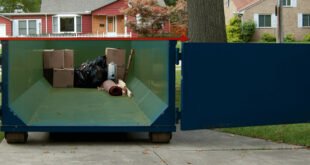There are many benefits to using automatic and electronic locks in residential and commercial properties. They afford you the opportunity of going around without keys while your doors are locked and secure. The locks can also be monitored remotely through smart gadgets and applications. We intend to give more info here about these lock types and whether they’re safe for your home.
As a start, there are various types of automatic locks.
1- Electric deadbolt
These sets of locks can replace your existing locks for cabinets and heavy security doors. They are installed with bolts and saves you from the cost of constant rekeying or total replacement.
2- Electric strike
These locks work with electric currents and remain functional even during a power outage. Some of them come with knobs to facilitate opening and buzzers for timely alerts. These doors automatically open when power is disrupted.
3- Electromagnetic
These locks work by the action of an electromagnetic plate. These plates ensure that the door closes when opened automatically. However, this is not the door for high-security places as they can have no interconnecting boards and can be overridden by a power disruption. On the other hand, they are easy to operate and also durable.
4- Magnetic
These locks shut without manual intervention. They are suitable for residential and commercial properties as they offer aesthetic advantages.

5- Wireless
All you need to unlock these doors is a smart device. You can monitor the entry and exit log of your doors remotely. They also afford you the opportunity of doing some programming such as setting the door to lock at some particular time. Other types of locks in this category offer keypads as a means of entry. You will need to set a personal passcode that can be shared with third parties as you wish.
There are also smart locks that require a personal ID to gain entry. These IDs are preprogrammed and can be edited accordingly.
Are these Locks Safe?
The safety of these locks depends on your personal needs and property type. This is because a wide range of these automatic locks is capable of securing your doors. However, the downside is not the locking mechanism but the user. Break-ins are usually due to unlocked doors which is not totally a function of the lock itself.
Automatic locks might not be the option for you if you’re very forgetful or not tech-savvy. It is easy to operate but must fit the user’s personality for optimal function. These doors are especially useful in residential places. However, some people argue about its convenience. In business buildings, they are mostly employed to keep track of the entry and exit log in the center.
Some other benefits of these locks include:
- You do not need to carry keys around. If keys are the reason for the jeopardy in your security, you do not have to worry about that anymore.
- They offer seamless access to authorized users.
- You can keep track of whoever enters a place.
- They are the most convenient choice for disabled people.
- Most of these lock types have ergonomic designs and aesthetics

Some downsides to these locks are:
- The entry code becomes easier to guess as you use the keypads over a long period. This is because the constant fingerprints make an impression on the keypad over time.
- Power disruption renders some of these locks useless. This can jeopardize your safety especially if you do not have backup batteries or an alternative power source.
- They must be installed by professionals, else, you run the risk of getting locked out continually.
- If one of the people with access to the lock is forgetful, this might lead to some discomfort as you have to remind them continually or change the pin.
- If you forget to change the default code, the lock becomes vulnerable to dysfunctions and break-ins.
Truly, some automatic locks are easier to break into than conventional locks. Lock hackers can use paper clips to open a fingerprint-enabled door seamlessly. In addition, a power outage can be a reason for getting your safety jeopardized. Based on these, we recommend that you keep your doors and windows locked at all times even when you’re indoors.
Also, you should prepare backup generators or batteries in case of power disruption. Ensure that the doors are steel made and not hollow wood. The passcode should also be restricted to authorized personnel and a timely report should be made on account of misplaced keycards.



